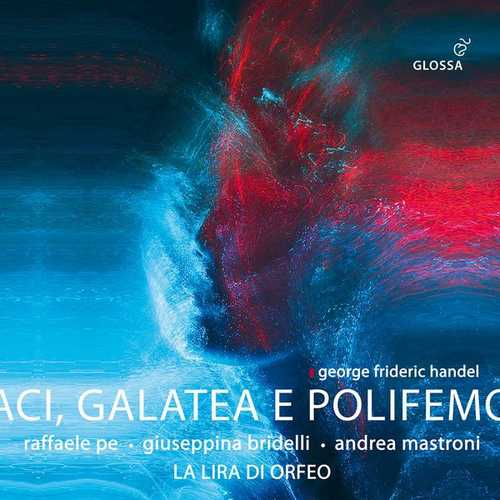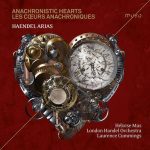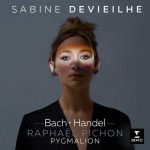

Composer: George Frideric Handel
Performer: Andrea Mastroni, Raffaele Pe, Giuseppina Bridelli, La Lira di Orfeo
Number of Discs: 2
Format: FLAC (tracks)
Label: Glossa
Catalogue: GCD923528
Release: 2021
Size: 1.49 GB
Recovery: +3%
Scan: yes
Aci, Galatea e Polifemo, HWV 72 (Reconstr. R. Pe & F. Longo)
CD 01
01. Ouverture
02. Mi palpita il cor
03. Affano tiranno
04. Sorge il dì
05. Vanti, o cara
06. Lontan da te
07. Se di perle un tesoro
08. Sforzano a piangere
09. Ma qual orrido suono
10. Ferito son d’amore
11. Deh lascia, o Polifemo
12. Benché tuoni
13. Cadrai depressa e vinta
14. Non sempre, no, crudele
CD 02
01. Folle, quanto mi rido
02. Dell’aquila l’artigli
03. Meglio spiega i tuoi sensi
04. Proverà lo sdegno mio
05. Ingrata, se mi nieghi
06. Fra l’ombre e gli orrori
07. Ah, crude stelle
08. Qui l’augel da pianta in pianta
09. Giunsi alfin mio tesoro
10. Se m’ami, o caro
11. Qui sull’alto del monte
12. Cara, sino i tormenti
13. Delfin vivrà sul monte
14. Oh Dei
15. Verso già l’alma
16. Misera, e dove sono?
17. Del mar fra l’onde
18. Ferma, ma già nel mare
19. Chi ben ama ha per oggetti
Handels dramatic cantata Aci, Galatea e Polifemo is a serenata first performed in Naples in 1708 with a libretto by Niccola Giuvo after Book 13 of Ovids Metamorphoses. Handel adapted this score several times: The one-act masque Acis and Galatea (HWV 49), with an English text by John Gay, was first performed at Cannons in 1718.
This was followed by, among others, a version as a three-act serenata for the Italian opera company in London in 1732 and an adaptation of the original English work into a two-act work in 1739.
The so-called Senesino version presented on this recording is based on a manuscript from the British library in London.
In this version probably written for the famous castrato Senesino, Aci is an alto and Galatea is a soprano, all arias of the two characters are transposed. Polifemos part is almost completely re-written, with long accompanied recitatives and new arias.
The instrumentation is slightly different from the Neapolitan version: No trumpets are present but a more extended use of woodwinds and recorders.



